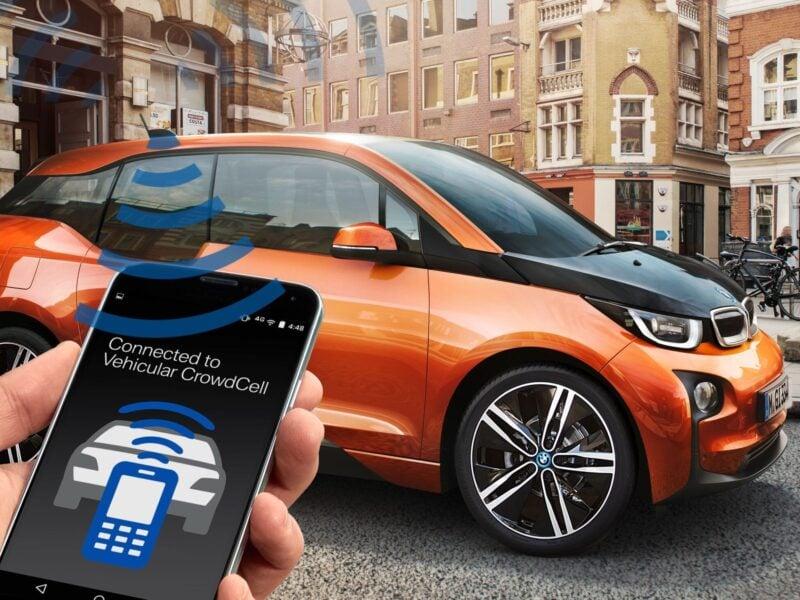How Is the Automotive Femtocell Market Accelerating In Vehicle Connectivity with 4G, 5G, and Hybrid Solutions?

Introduction
According to Next Move Strategy Consulting Report, the Automotive Femtocell Market is on the brink of a major upswing, having grown from a niche technology in early connected–vehicle trials to a mainstream solution for ensuring reliable, high‑speed data and telematics inside cars, buses, and commercial fleets. Fueled by the rollout of 5G networks, rising consumer expectations for uninterrupted in‑vehicle entertainment and navigation, and deepening collaborations between femtocell specialists and leading automakers, the market has moved from initial installations in luxury models to widespread adoption across mass‑market segments and public transit systems.
Tackling Vehicular Penetration Loss with Mobile Femtocells
Materials used in modern vehicle construction—such as metal panels, tinted glass, and composite reinforcements—greatly attenuate cellular signals, leading to high vehicular penetration loss (VPL) and path loss that degrade user experience. Research by Rand Raheem indicates that under a VPL of 40 dB, the adoption of mobile‑femto can boost ergodic capacity by around 5%, directly enhancing the performance of in‑car user equipment on LTE networks. By installing 4G/LTE or 5G femtocells inside cabins, operators can create a miniature cell site that bridges weak outdoor signals to interior devices, ensuring consistent bandwidth for streaming, navigation, and V2X applications.
Meeting the Surge in In‑Vehicle High‑Speed Data Demand
Vehicles are no longer mere modes of transport—they have evolved into connected hubs that demand bandwidth‑heavy services: HD video streaming, real‑time traffic updates, cloud‑based gaming, and even remote diagnostics for autonomous driving systems. Femtocells localize network traffic within the vehicle, offloading strain from macrocells and delivering up to 100 Mbps throughput in ideal conditions. This capability is especially critical as average mobile data consumption per passenger rises by double‑digit percentages year over year
Leveraging 5G and Hybrid Femtocell Architectures
The transition to 5G networks brings ultra‑low latency and enhanced capacity, but also tighter link budgets that exacerbate penetration challenges. Automotive femtocell vendors are responding with hybrid solutions that combine 4G fallback and 5G NR (New Radio) support, allowing vehicles to maintain service continuity during handovers between macro networks and in‑vehicle cells. These hybrid femtocells intelligently balance traffic, routing critical telematics over low‑latency 5G slices while relegating non‑time‑sensitive infotainment to LTE channels.
Overcoming Macro Network Interference Risks
Since femtocells operate in licensed spectrum, their deployment must be carefully coordinated to prevent interference with surrounding macro towers and other small cells. Dynamic power control algorithms, closed subscriber group (CSG) access lists, and self‑organizing network (SON) features are critical to ensuring harmonious coexistence. Without robust interference mitigation, poorly configured vehicular femtocells can degrade overall network performance—making sophisticated network management tools an essential part of any deployment strategy
Strategic OEM Alliances Fuel Market Penetration
Partnerships between femtocell providers and automotive manufacturers are key to embedding cellular cells seamlessly into new vehicle models. BMW’s “vehicular small cell” concept demonstrates how in‑factory integration can optimize antenna placement, power management, and thermal design—avoiding the retrofit complexities of aftermarket units. Similar collaborations with tier‑one suppliers and chipset vendors, such as Qualcomm’s multi‑band femtocell platforms, are enabling automakers to offer factory‑installed connectivity packages that enhance user experience and open new revenue streams through subscription‑based connectivity services.
Segment Breakdown: Connectivity, Vehicle Type, and Applications
Next MSC segments the market by:
- Connectivity: 4G/LTE, 5G, and hybrid femtocells.
- Vehicle Type: Passenger and commercial vehicles.
- Application: Infotainment & telematics, vehicle‑to‑everything (V2X) communication, safety & emergency services, and fleet management.
- Sales Channel: OEM integration versus aftermarket retrofit kits.
Infotainment and telematics dominate early deployments, while safety‑critical services—such as in‑vehicle eCall emergency calls—are driving regulatory interest and premium femtocell offerings
Regional Dynamics: North America, Europe, and Asia‑Pacific
- North America: Benefits from mature 4G/5G rollouts, strong OEM‑vendor ecosystems, and early regulatory support for connected‑vehicle mandates.
- Europe: Features leading automakers testing vehicular small cells under harsh climatic conditions, coupled with advanced spectrum harmonization policies.
- Asia‑Pacific: Rapid urbanization and surging demand for in‑car connectivity in China, Japan, and India are spurring both OEM and aftermarket femtocell solutions—especially in fleets and public transport vehicles
Competitive Landscape and Innovation Hotspots
Key players—Qualcomm Technologies, Cisco Systems, Nokia, Huawei, and Airspan Networks—are investing in R&D to shrink form factors, boost multi‑operator support, and embed AI‑driven interference management. Startups and traditional telecom vendors alike are piloting innovative architectures such as mesh‑enabled femtocell clusters for buses and trains, where multiple cells form a resilient network that hands over seamlessly at high speeds
Future Outlook: Towards Fully Autonomous, always‑Connected Vehicles
As the automotive industry accelerates toward Level 4/5 autonomy, the need for ultra‑reliable, low‑latency in‑vehicle networks will intensify. Automotive femtocells, integrated with edge‑computing nodes and multi‑access edge computing (MEC) platforms, will become pivotal in processing safety‑critical data locally, while leveraging the wide area network for cloud‑based analytics. Moreover, the rise of software‑defined networking (SDN) in vehicles will enable dynamic slicing of in‑car networks, allocating dedicated bandwidth for navigation, passenger infotainment, and over‑the‑air (OTA) updates—all managed through centralized orchestration platforms
Conclusion
The Automotive Femtocell Market is emerging as a cornerstone of next‑generation connected vehicles, addressing the persistent challenge of vehicular penetration loss and meeting ever‑growing data demands. Through strategic OEM partnerships, hybrid 4G/5G architectures, and advanced interference management, femtocells will ensure that drivers and passengers enjoy uninterrupted, high‑speed connectivity—paving the way for safer, smarter, and more autonomous mobility solutions. As market participants refine integration approaches and align with evolving regulatory frameworks, the road ahead is clear: in‑vehicle small cells will be indispensable enablers of the fully connected car.
- Art
- Causes
- Crafts
- Dance
- Drinks
- Film
- Fitness
- Food
- Spiele
- Gardening
- Health
- Startseite
- Literature
- Music
- Networking
- Andere
- Party
- Religion
- Shopping
- Sports
- Theater
- Wellness
- IT, Cloud, Software and Technology


